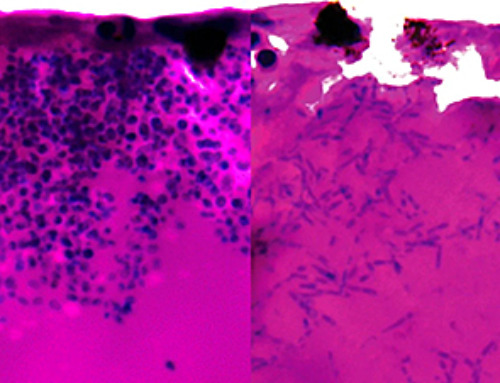A number of young children are being hospitalized because of respiratory syncytial virus, or RSV, and it's happening at an unusual time of year and among older children than in years past.
RSV infections and related emergency-room visits and hospitalizations are nearing seasonal peaks in some U.S. regions, according to the Centers for Disease Control and Prevention.
But the current RSV outbreak is different from previous outbreaks in several ways: It's happening in the fall rather than the winter (RSV commonly peaks after the holidays, starting in late December); older children and not just infants are being hospitalized; and cases are occurring that are more severe than in previous years. And this year, RSV is circulating at the same time as COVID, influenza, and other viruses like the biennial enterovirus, which was behind a rise in pediatric hospitalizations earlier this fall.
"The theory is that everyone's now back together, and this is a rebound phenomenon," said Jeffrey Kline, a physician and associate chair of research for emergency medicine at Wayne State University School of Medicine in Detroit.
Kline runs a national surveillance network that gathers data about viral infections from about 70 hospitals, including four pediatric hospitals. He says those data show that 318 children were hospitalized with acute respiratory illness brought on by RSV in the week starting Oct. 9, compared with 45 hospitalizations in the week starting July 25.
"If we think about the relative increase — ninefold increase — that's not nothing, especially in the pediatric [emergency departments]," Kline said. "Holy mackerel."
The U.S. saw a massive spike in RSV cases in the summer of 2021, after masking and social distancing resulted in a lull in infections the previous year. Even with that spike, fewer young children — 2-, 3-, and 4-year-olds — have been exposed to RSV than in a normal year. Most children have usually had at least one RSV infection by the time they are 2 years old, and as children get older, RSV becomes less worrisome, according to the CDC. Infants are at higher risk for severe disease brought on by RSV because babies have more immature immune responses than older children and because infants younger than 6 months of age breathe exclusively through their noses and cannot breathe through their mouths if they are congested.
"Age by itself is a risk factor for more severe disease, meaning that the younger babies are usually the ones that are sick-sick," said Asuncion Mejias, a principal investigator with the Center for Vaccines and Immunity at the Research Institute at Nationwide Children's Hospital in Columbus, Ohio. Now, she added, "we are seeing also older kids, probably because they were not exposed to RSV the previous season."
But there's another reason that COVID may be worsening some RSV infections in the youngest children. Mejias is studying whether a prior COVID infection or exposure somehow changes the way a baby's immune system responds to RSV and whether it may lead to more severe illness from an RSV infection.
"That is something to work on and understand," she said.
For now, however, worries are tied to the possibility of a "tripledemic" of COVID, influenza, and RSV as the U.S. heads into what is expected to be a complicated season for respiratory infections. Stat News reported in mid-October that flu season is already underway, and the CDC said this week that this year's flu activity may have "atypical timing and intensity."
COVID itself remains a threat, as well. There are still more children being hospitalized with COVID than with RSV, Kline said, and some kids are getting sick from both viruses at the same time. About 5% of children are thought to test positive for both RSV and COVID, and 60% of the children in that group were hospitalized, according to Kline's surveillance network.
"All these things are going on all at once right now," said Alex Frost, managing director for StudyMaker, which is providing software infrastructure to the network. "But the shape of pediatric cases that are showing up in the emergency room is different than it used to be."
Image Credit: Envato Elements
News
Scientists Unlock a New Way to Hear the Brain’s Hidden Language
Scientists can finally hear the brain’s quietest messages—unlocking the hidden code behind how neurons think, decide, and remember. Scientists have created a new protein that can capture the incoming chemical signals received by brain [...]
Does being infected or vaccinated first influence COVID-19 immunity?
A new study analyzing the immune response to COVID-19 in a Catalan cohort of health workers sheds light on an important question: does it matter whether a person was first infected or first vaccinated? [...]
We May Never Know if AI Is Conscious, Says Cambridge Philosopher
As claims about conscious AI grow louder, a Cambridge philosopher argues that we lack the evidence to know whether machines can truly be conscious, let alone morally significant. A philosopher at the University of [...]
AI Helped Scientists Stop a Virus With One Tiny Change
Using AI, researchers identified one tiny molecular interaction that viruses need to infect cells. Disrupting it stopped the virus before infection could begin. Washington State University scientists have uncovered a method to interfere with a key [...]
Deadly Hospital Fungus May Finally Have a Weakness
A deadly, drug-resistant hospital fungus may finally have a weakness—and scientists think they’ve found it. Researchers have identified a genetic process that could open the door to new treatments for a dangerous fungal infection [...]
Fever-Proof Bird Flu Variant Could Fuel the Next Pandemic
Bird flu viruses present a significant risk to humans because they can continue replicating at temperatures higher than a typical fever. Fever is one of the body’s main tools for slowing or stopping viral [...]
What could the future of nanoscience look like?
Society has a lot to thank for nanoscience. From improved health monitoring to reducing the size of electronics, scientists’ ability to delve deeper and better understand chemistry at the nanoscale has opened up numerous [...]
Scientists Melt Cancer’s Hidden “Power Hubs” and Stop Tumor Growth
Researchers discovered that in a rare kidney cancer, RNA builds droplet-like hubs that act as growth control centers inside tumor cells. By engineering a molecular switch to dissolve these hubs, they were able to halt cancer [...]
Platelet-inspired nanoparticles could improve treatment of inflammatory diseases
Scientists have developed platelet-inspired nanoparticles that deliver anti-inflammatory drugs directly to brain-computer interface implants, doubling their effectiveness. Scientists have found a way to improve the performance of brain-computer interface (BCI) electrodes by delivering anti-inflammatory drugs directly [...]
After 150 years, a new chapter in cancer therapy is finally beginning
For decades, researchers have been looking for ways to destroy cancer cells in a targeted manner without further weakening the body. But for many patients whose immune system is severely impaired by chemotherapy or radiation, [...]
Older chemical libraries show promise for fighting resistant strains of COVID-19 virus
SARS‑CoV‑2, the virus that causes COVID-19, continues to mutate, with some newer strains becoming less responsive to current antiviral treatments like Paxlovid. Now, University of California San Diego scientists and an international team of [...]
Lower doses of immunotherapy for skin cancer give better results, study suggests
According to a new study, lower doses of approved immunotherapy for malignant melanoma can give better results against tumors, while reducing side effects. This is reported by researchers at Karolinska Institutet in the Journal of the National [...]
Researchers highlight five pathways through which microplastics can harm the brain
Microplastics could be fueling neurodegenerative diseases like Alzheimer's and Parkinson's, with a new study highlighting five ways microplastics can trigger inflammation and damage in the brain. More than 57 million people live with dementia, [...]
Tiny Metal Nanodots Obliterate Cancer Cells While Largely Sparing Healthy Tissue
Scientists have developed tiny metal-oxide particles that push cancer cells past their stress limits while sparing healthy tissue. An international team led by RMIT University has developed tiny particles called nanodots, crafted from a metallic compound, [...]
Gold Nanoclusters Could Supercharge Quantum Computers
Researchers found that gold “super atoms” can behave like the atoms in top-tier quantum systems—only far easier to scale. These tiny clusters can be customized at the molecular level, offering a powerful, tunable foundation [...]
A single shot of HPV vaccine may be enough to fight cervical cancer, study finds
WASHINGTON -- A single HPV vaccination appears just as effective as two doses at preventing the viral infection that causes cervical cancer, researchers reported Wednesday. HPV, or human papillomavirus, is very common and spread [...]





















